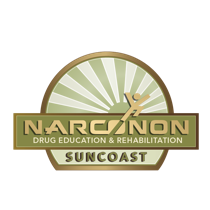Cocaine goes by many Street Names: Coke, Dust, Toot, Snow, Blow, Sneeze, Powder, Lines, Crack, Rock

The drug may be used in several different ways such as; snorted as a powder, converted into a liquid form and injected, or processed into a crystal form and smoked.
Frequent users of this drug typically don’t eat or sleep regularly. They can experience increased heart rate, which can lead to heart attacks, seizures, strokes and respiratory failure. Other symptoms can include muscle spasms and convulsions.
Combining cocaine with other drugs or alcohol is extremely dangerous and can be fatal.
People who snort cocaine can permanently damage their nasal tissue. The people who inject it and share needles can also contract hepatitis, HIV/AIDS, or other diseases. Even first time users can have seizures or fatal heart attacks.
In addition to the physical dangers and effects this drug can have on your body there are also many emotional affects one may experience. Use of the drug can make you feel paranoid, angry, hostile, and anxious, even when you’re not high. Cocaine impairs your judgment, which may lead to unwise decisions and involvement in risky activities with negative consequences.
Cocaine is addictive and interferes with the way your brain processes chemicals that create feelings of pleasure, resulting in the need for more of the drug just to feel normal. When people become addicted to cocaine they start to lose interest in other areas of their life.
Since this drug is very expensive, regular users can spend hundreds and even thousands of dollars on it each week.
Know the Signs of Cocaine Use
There are several common signs you can look for if you think that someone is using this harmful drug. If you know someone with one or more of the following warning signs, they may be using this or other illicit drugs:
- Red, bloodshot eyes
- A runny nose or frequent sniffing
- A change in groups of friends
- Acting withdrawn, depressed, tired, or careless about personal appearance
- Losing interest in school, family, or activities he or she used to enjoy
- Frequently needing money
Q & A

A) No. Both cocaine and crack are powerfully addictive. The length of time it stays in your body doesn’t change that.
Q) Don’t some people use cocaine to feel good?
A) Any positive feelings are fleeting and often followed by some very bad feelings, like paranoia and intense cravings. Cocaine may give users a temporary illusion of power and energy, but it often leaves them unable to function emotionally & physically.
Q) Is cocaine illegal?
A) Cocaine is illegal to sell, buy or possess in any form.
Q) If someone doesn’t do cocaine regularly or just tries it, is it safe?
A) No! Even first time or occasional users can suffer from seizures or fatal heart attacks.
What can you do to help someone who is using cocaine?
For nearly 50 years, Narconon has saved those who were thought lost to substance abuse forever.
Get them to seek help now. Call Narconon Suncoast at 1-877-850-7355.
